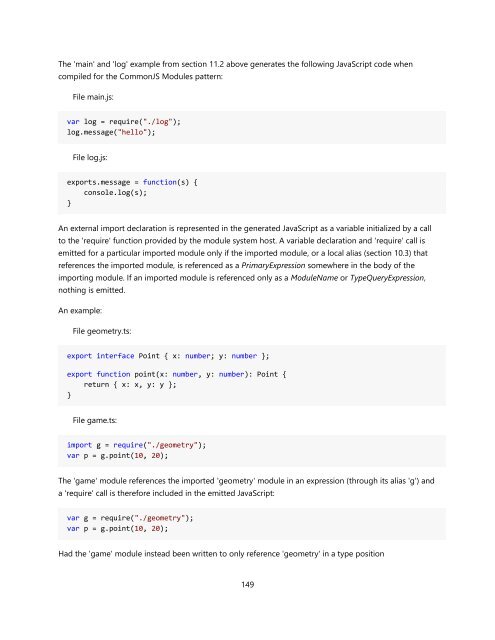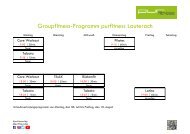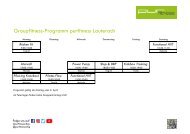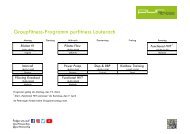TypeScript Language Specification v1.5
TypeScript Language Specification v1.5
TypeScript Language Specification v1.5
You also want an ePaper? Increase the reach of your titles
YUMPU automatically turns print PDFs into web optimized ePapers that Google loves.
The 'main' and 'log' example from section 11.2 above generates the following JavaScript code when<br />
compiled for the CommonJS Modules pattern:<br />
File main.js:<br />
var log = require("./log");<br />
log.message("hello");<br />
File log.js:<br />
exports.message = function(s) {<br />
console.log(s);<br />
}<br />
An external import declaration is represented in the generated JavaScript as a variable initialized by a call<br />
to the 'require' function provided by the module system host. A variable declaration and 'require' call is<br />
emitted for a particular imported module only if the imported module, or a local alias (section 10.3) that<br />
references the imported module, is referenced as a PrimaryExpression somewhere in the body of the<br />
importing module. If an imported module is referenced only as a ModuleName or TypeQueryExpression,<br />
nothing is emitted.<br />
An example:<br />
File geometry.ts:<br />
export interface Point { x: number; y: number };<br />
export function point(x: number, y: number): Point {<br />
return { x: x, y: y };<br />
}<br />
File game.ts:<br />
import g = require("./geometry");<br />
var p = g.point(10, 20);<br />
The 'game' module references the imported 'geometry' module in an expression (through its alias 'g') and<br />
a 'require' call is therefore included in the emitted JavaScript:<br />
var g = require("./geometry");<br />
var p = g.point(10, 20);<br />
Had the 'game' module instead been written to only reference 'geometry' in a type position<br />
149


















